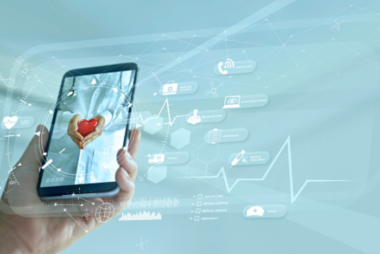Significance of Electronic Health Care Amid the Pandemic
Access to health information during an international health epidemic is not the same for everyone. Not everyone receives medical information in our electronic world in the same way. RateMDs recently conducted a study on IPUMS health surveys from 2019 onwards to understand where the gaps now exist, using virtual health care and vital medical information. The result shows the financial status may not be the only reason for the discrepancy between technology and personal health care advice. Besides, it is easy to see why many people turn to the web to understand what is happening to their bodies and seek medical treatment. You can join some actions in promoting electronic health care that make you help more people to recognize the existence of this telehealth. Therefore, you should check https://www.fehap.fr/jcms/nouvelle-aquitaine/journee-esea-2015-la-e-sante-en-action-/-decouvrez-le-pre-programme-et-inscrivez-vous-fehap_180975 to learn how to register yourself.

Increase the Accessibility
More than one in three Americans interviewed by RateMD reported finding signs of COVID-19 online at least once a week or more. However, 17% of people over the age of 60 admitted never using the Internet for these purposes. Unlike men (49%), girls (59%) were more likely to use digital health programs. Girls were also more likely to use the Internet to perform essential health functions, such as filling prescriptions online (13%) and communicating with their health care providers via email (16%).
In an age of social alienation and self-quarantine, young people may also have an advantage when it comes to using online health tools. People between the ages of 20 (64%) and 30 (63%) use the Internet more often to get health advice. Even if not all people use the web in the same way when searching for health problems or for more urgent needs, such as communicating with their health care providers or replenishing the senses, are they better suited to their electronic interactions?
Increase Health Awareness
People who use the World Wide Web to ask for health advice are 12 percentage points more likely to be healthy, along with people who talk to their suppliers via email (5 percentage points) and fill in prescriptions online (0.1 percentage points). Because the study found that the use of online health tools made the most significant difference in maintaining good health among older generations, it could help people to understand more about COVID-19 virtually.
The Internet is not always the best source of information for people who care about their well-being. Men would be most affected if they were looking for health information on the Internet. Overall, people who used the World Wide Web to ask for health advice were 13 percentage points more likely to feel stressed, for example, 45% of women and 43% of men. While younger generations used the Internet much more often to answer their health questions, people in their 20s and 30s felt more nervous afterwards.
Practice Physical and Social Distancing
In the era of COVID-19, obtaining high-quality health information on the Internet can help prevent high-risk and potentially dangerous physical susceptibility to the virus. If you can use the Internet for solutions that do not require personal visits (such as talking to a doctor or filling out a prescription), these standard appointments can be saved for people who want them. People who use the Internet for various health problems report feeling healthy, but can also be bombarded with too much advice. Amid a health pandemic, the ability to use the Internet for medical advice requires a balance to avoid being overwhelmed by all the information (and opinions) that can be found online.

